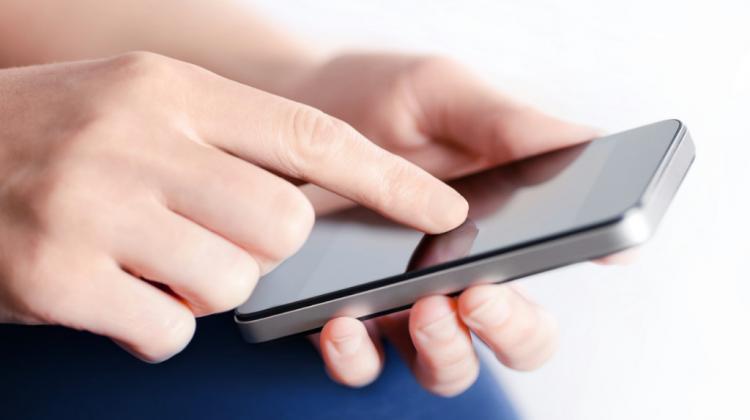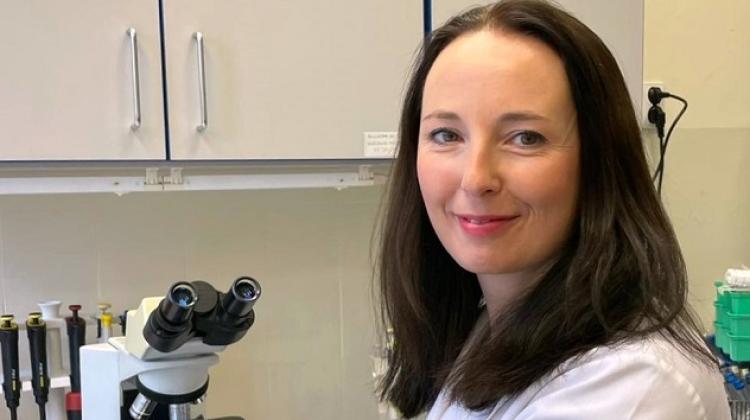Eco-Bot: The Personalized Virtual Assistant to Help You Conserve Energy
 Photo: Fotolia
Photo: Fotolia
A personalised virtual energy assistant which will tell users about power consumption is being developed by scientists from the University of Economics in Katowice in conjunction with several other EU countries.
The venture called Eco-Bot is an innovative new system for managing energy at home and work by providing information on energy consumption using a chat tool - bot. Users will mainly use it in the form of a phone app, but also via the energy service provider website or on social media.
Project leader Dr. Sylwia Słupik from the University of Economics in Katowice said: "The task of Eco-Bot is to inform and teach effective energy management. The virtual assistant will download data in real time using remote metering systems (smart metering) from individual home appliances (washing machines, refrigerators) so that the customer can compare the consumption of individual devices in a given period. Eco-Bot will also advise users how they can optimise their consumption, save energy and reduce costs.
"Our project, which is part of the EU programme Horizon 2020, is innovative on a European scale. It combines three components: it is based on new information technologies, it concerns sustainable energy use and it is focused on changing consumer attitudes towards an ecological approach to life. I think that it is very much needed because it will help customers be more aware and educated, which - we hope - will result in reduced energy consumption or more responsible, ecological and sustainable consumption.”
Słupik said that the first step was energy disaggregation and data analysis based on NILM algorithms, i.e. the division of the energy signal from the entire household into data from individual appliances. "This is possible when smart metering is installed in the home. Analysis of the obtained data will make consumers aware of their most energy-consuming devices," she said.
In turn, the main task of scientists from the University of Economics in Katowice specialising in behavioural economics, i.e. consumer behaviours and habits, was to develop an individual model of energy consumers` behaviour. Researchers segmented clients in terms of their motivation to change behaviour. They used econometric, statistical and mathematical methods.
"Our Eco-Bot will be a personalized tool, therefore its recommendations should be best suited to the profile and needs of a particular consumer. We have done a survey; so far we have surveyed 300 people, customers of our partners, because they will be testing the product and it should be tailored to their needs. In the next stage, we plan to expand the survey to approximately 1.5 thousand respondents, so that the resulting product can be unified based on the results," Słupik said.
After processing surveys, economists proposed five basic groups based on the source of motivation to act. According to Słupik, the two main groups are the desire for financial and ecological motivation; each is divided into two further subgroups.
She said: ”In the ecological segment, on the one hand, we have people who are consciously guided by ecology on a daily basis, ecological idealists, and on the other, there is a group of people who would like to strive for this perfection or are guided by eco-fashion and want to be perceived in this way. In the segment where financial motivation dominates, one can distinguish a group of people focused on reducing energy costs at all costs, and those who do not necessarily care about it, unless it is easy to achieve.”
Each Eco-Bot user will be assigned to a specific group. On this basis, the device will send personalized recommendations developed by scientists. For example, the energy-saving group will receive the message: "When buying new equipment, pay attention to energy efficiency. The higher the energy efficiency, the lower the electricity bill." Eco-idealists will get the notification: "Keeping the optimal temperature depending on the capacity of the refrigerator is environmentally friendly." And for eco-fashion conscious users: "Turning off unnecessary lighting is a sign of a green lifestyle!"
Researchers are currently conducting the final preparations for the pilot run, which will start in January. It will include 300 people who are customers of energy suppliers taking part in the project. "When they log in for the first time - be it to the application, platform or our other tools - they will complete a short 10-point test to assign them to the appropriate behavioural group. Then they can start a chat. We anticipate two forms of communication: the first is user questions, e.g. to provide consumption from the last week (the responses will be either verbal or graphical in the form of charts.) In addition, the bot will send recommendations, e.g. remember not to leave your devices in stand-by mode," Słupik said.
She added: ”I think people are becoming better informed about climate threats and are increasingly thinking about ecology. The more so that there is a generational change, so this trend towards sustainable energy and green economy is irreversible. I can`t wait to try the Eco-Bot as a consumer myself.”
The project - co-financed by the European Commission with nearly EUR 2 million - will continue until spring 2021. After its completion, Eco-Bot will become the property of the consortium and then it will be decided whether and how to commercialise it.
The full title of the project is: "Personalised ICT-tools for the Active Engagament of Consumers Towards Sustainable Energy Eco-Bot". The consortium consists of entities from Germany, Spain, the UK, Greece and Poland. The official website of the project is: www.eco-bot.eu.
PAP - Science in Poland, Agnieszka Kliks-Pudlik
akp/ agt/ kap/
tr. RL
Przed dodaniem komentarza prosimy o zapoznanie z Regulaminem forum serwisu Nauka w Polsce.















